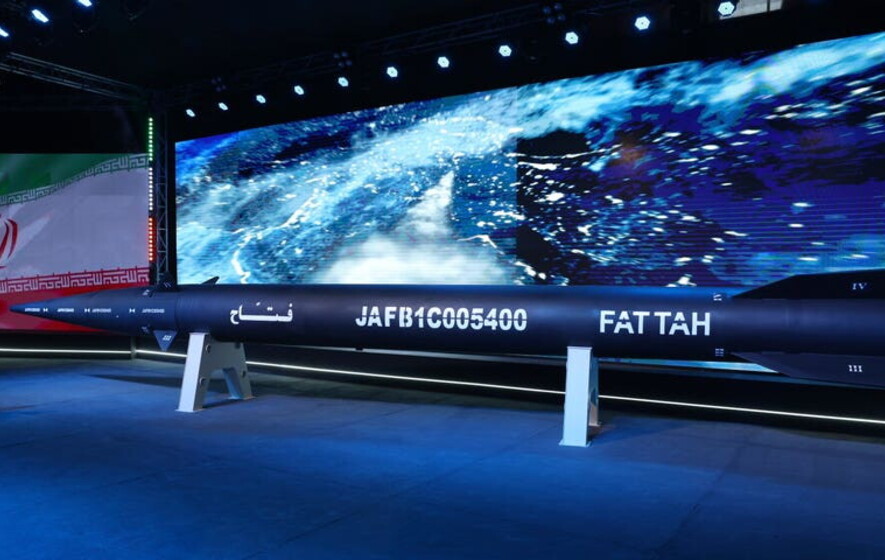
Hypersonic missile
Iran has unveiled its first domestically developed hypersonic missile, named Fattah, which it claims can travel up to 15 times the speed of sound. The missile has a range of 870 miles and is capable of bypassing air defense systems. Iran has claimed previously that it would be able to hit Israel within 400 seconds.
The development of this missile is significant because only four other countries in the world currently possess hypersonic missiles. The announcement comes amid reports that Iran is about to receive $24bn from countries including Iraq and South Korea, as well as a release of prisoners.
President Ebrahim Rahisi
President Ebrahim Rahisi and commanders of Iran’s elite Revolutionary Guard Corps attended a ceremony when the Fattah missile was unveiled, according to images released by the Iranian state media. According to Amirali Hajizadeh, the commander of the Guards’ aerospace unit, “the precision-guided Fattah hypersonic missile has a range of 1,400 km and it is capable of penetrating all defence shields.”
Hypersonic missiles have a complicated trajectory and can travel at least five times faster than the speed of sound, making them challenging to intercept. The Islamic Republic claimed to have developed a hypersonic ballistic missile capable of manoeuvring into and out of the atmosphere last year.
Iran’s Fattah missile
According to state television, Iran’s Fattah missile represents a significant advancement in the field of missiles and can target “the enemy’s advanced anti-missile systems.” Iranian State media also added that the hypersonic ballistic missile of Iran can bypass most advance anti-ballistic missile systems of the United States and the Zionist regime, including Israel’s Iron Dome.
The Islamic Republic has declared that it will continue to advance its defensive missile programme despite criticism from the United States and Europe. However, according to Western military analysts, Iran occasionally exaggerates the range of its missiles.
Israeli Prime Minister Benjamin Netanyahu
Meanwhile, Israeli Prime Minister Benjamin Netanyahu has expressed concern over the possibility of the west reopening negotiations with Tehran as part of an effort to revive an accord controlling Iran’s civil nuclear programme.






